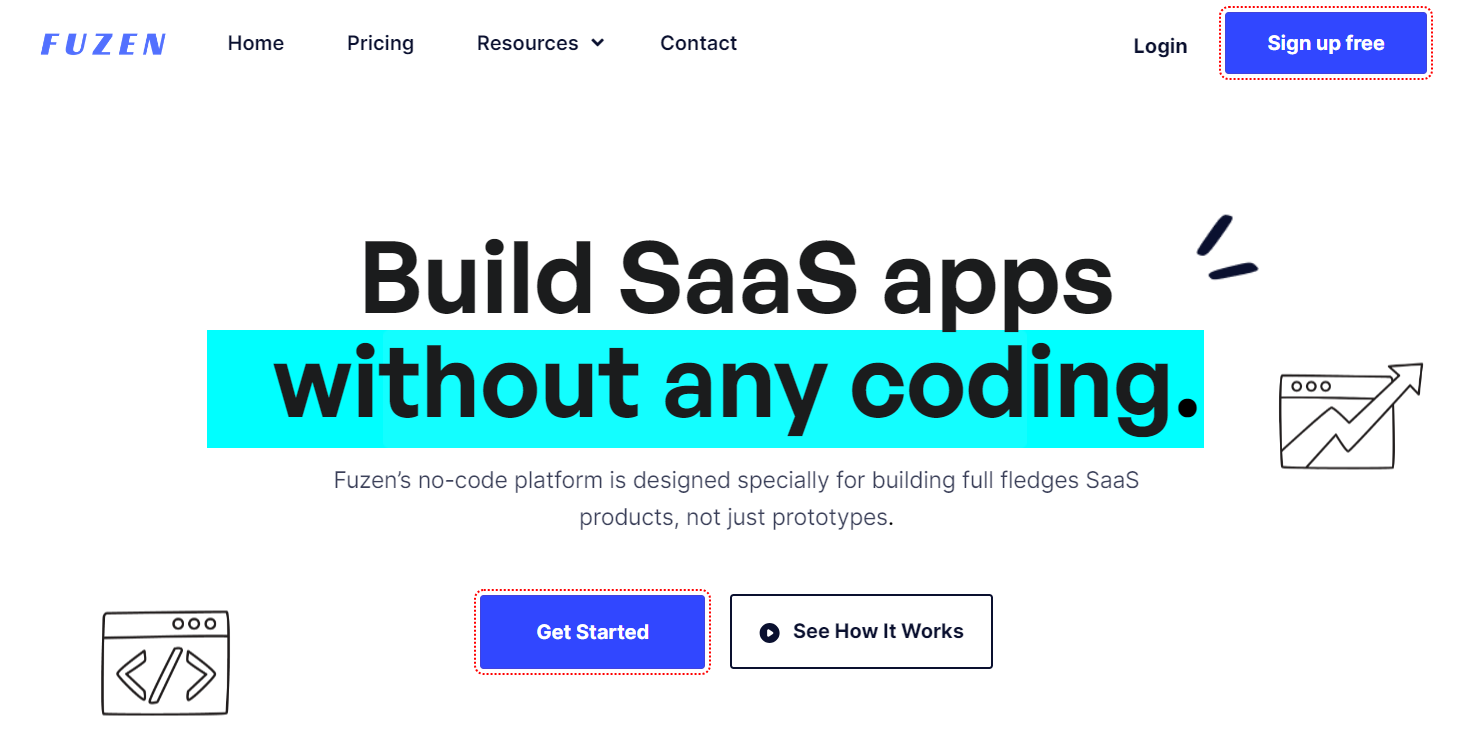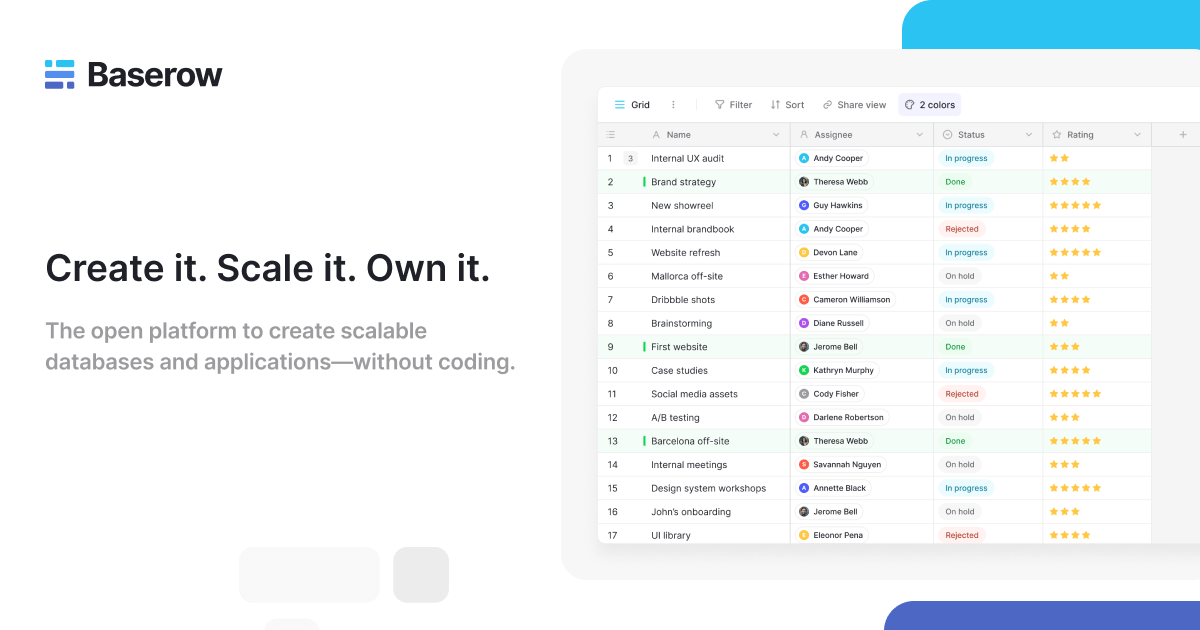Simple And Easy Open Platform Data Source Creation Utilizing No-Code Technology
Simple And Easy Open Platform Data Source Creation Utilizing No-Code Technology
Blog Article
Discovering the Benefits of Scalable Databases That Require No Coding Skills for Reliable Information Management Solutions
The introduction of scalable data sources that eliminate the need for coding skills provides a transformative opportunity for companies looking for effective data monitoring solutions. By enabling non-technical users to harness the power of information via instinctive user interfaces, these systems boost ease of access and foster collaboration throughout varied teams. Additionally, their cost-effectiveness and adaptability to progressing organization needs can dramatically improve operational processes. As we take into consideration the implications of such advancements, it comes to be important to examine just how they can improve the landscape of data management and drive lasting development in an affordable setting.
Boosted Access for Customers
Enhanced access for individuals is a vital aspect of scalable data sources, making sure that data management systems are easy to use and instinctive. In an age where data-driven decisions are vital, access enables a bigger variety of users, including those without extensive technical proficiency, to involve with database systems effectively. This democratization of data accessibility assists in improved collaboration throughout divisions, equipping staff members to make and draw out understandings educated decisions.
Straightforward user interfaces, such as aesthetic information and drag-and-drop attributes depiction, simplify complicated data communications. These improvements reduce the knowing curve associated with typical database monitoring, allowing users to concentrate on leveraging data instead of facing technological intricacies. Scalable data sources often incorporate real-time analytics and customizable control panels, providing users with immediate insights tailored to their specific demands.

Cost-Effectiveness and Source Cost Savings
Efficient information management not just rests on access yet additionally on cost-effectiveness and resource cost savings. Scalable data sources developed for individuals without coding skills substantially minimize financial concerns usually connected with typical data source administration systems. By eliminating the need for specialized shows know-how, companies can assign their sources much more efficiently, focusing funds on core organization activities instead of considerable training or working with skilled personnel.
In addition, these databases typically use cloud-based services, which even more reduce expenses associated with hardware and upkeep. Organizations can scale their data source services according to their needs, staying clear of the expenses incurred from over-provisioning resources. This flexibility suggests companies can adjust to transforming demands without sustaining unnecessary costs, resulting in significant lasting financial savings.
Furthermore, user-friendly interfaces streamline data entry and management procedures, decreasing the time spent on management jobs. This effectiveness converts into labor expense financial savings, allowing groups to concentrate on tactical initiatives instead of regular upkeep. In general, adopting scalable databases that need no coding skills fosters a much more economical strategy to data administration, allowing organizations to optimize their resources while keeping high degrees of functional effectiveness.
Improved Partnership Across Teams

In addition, scalable databases assist in seamless communication amongst group members. With easy to use interfaces that require no coding abilities, employees can quickly develop, customize, and share records or control panels customized to their details needs. This democratization of data empowers non-technical individuals to contribute understandings, enhancing the joint atmosphere.
Furthermore, these data sources sustain simultaneous accessibility, allowing multiple individuals to function on the very same read here dataset all at once. This attribute boosts performance, as groups can take part in joint information analysis without the threat of variation control issues. The ability to leave notes or remarks straight within the database further advertises dialogue and clarifies information interpretations.
Streamlined Information Administration Processes
In today's data-driven setting, companies identify the necessity of structured information management refines to take full advantage of efficiency and precision. By leveraging scalable databases that call for no coding abilities, organizations can simplify their information handling and decrease the complexities usually connected with typical data source systems. This accessibility empowers non-technical users to read the full info here engage directly with information, assisting in quicker decision-making and decreasing reliance on specialized IT personnel.
Streamlined information management processes boost process by automating routine tasks such as data entry, validation, and reporting. Automated information integration guarantees that info from different resources is accumulated effortlessly, getting rid of silos and fostering a merged sight of important company metrics (no-code). Moreover, easy to use user interfaces permit workers to manipulate information conveniently, allowing them to create understandings that drive tactical campaigns without the demand for substantial training.
This efficiency not just increases operational processes however also reduces the potential for human mistake, guaranteeing that information continues to be exact and trusted. Ultimately, streamlined information monitoring procedures through scalable data sources lead to improved productivity, enabling companies to concentrate on core activities while ensuring that their data management practices are effective and effective.
Scalability for Growing Companies

For expanding enterprises, the capability to scale up or down is critical. A scalable database can take care of an increase of data created from brand-new consumers, products, or services, guaranteeing that company procedures remain uninterrupted. These databases provide the capacity to manage peak loads effectively, which is continue reading this necessary during periods of quick growth or seasonal spikes.
Furthermore, several scalable database services are made with easy to use user interfaces that need no coding skills, encouraging non-technical staff to handle data efficiently (no-code). This democratization of information monitoring permits organizations to assign resources purposefully and minimize reliance on specialized IT employees
Ultimately, embracing a scalable data source not only enhances operational efficiency however also fosters an atmosphere where organizations can advance and introduce without the restrictions of traditional data source systems. This versatility placements companies for long-term success in today's affordable landscape.
Verdict
In verdict, scalable databases that require no coding skills offer considerable advantages for reliable data administration. By enhancing data management processes and supplying scalability for expanding businesses, such services make it possible for organizations to adapt to altering demands successfully.
Boosted access for users is a critical element of scalable databases, guaranteeing that information management systems are easy to use and user-friendly.Straightforward interfaces, such as aesthetic data and drag-and-drop features representation, simplify complicated data communications. In general, adopting scalable databases that need no coding abilities promotes a more cost-effective method to data monitoring, making it possible for organizations to optimize their sources while keeping high levels of operational efficiency.
By leveraging scalable databases that call for no coding abilities, businesses can streamline their data handling and decrease the intricacies typically connected with standard database systems - no-code.Structured information administration processes enhance workflow by automating routine tasks such as data entrance, validation, and reporting
Report this page